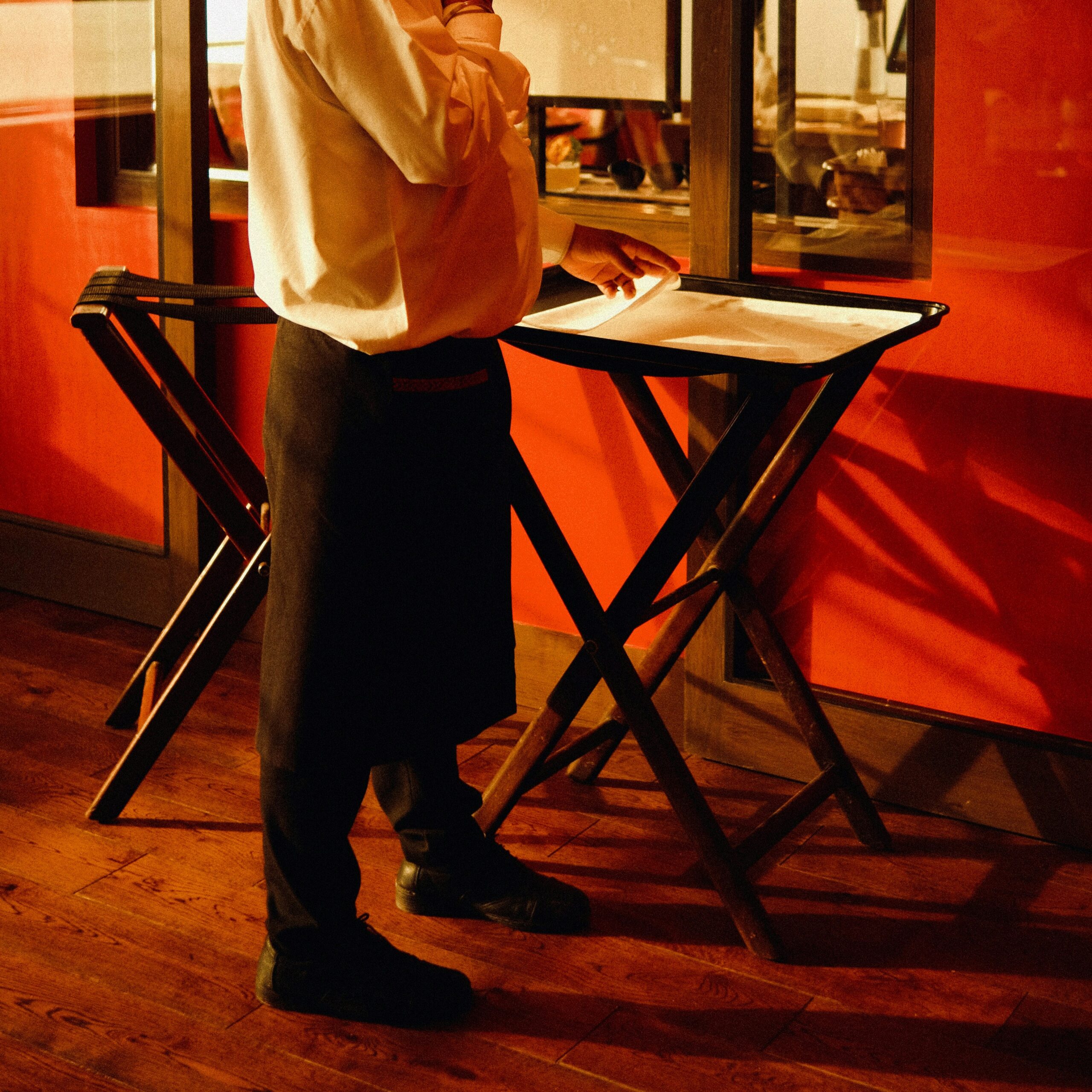In your first week interning at a luxury hotel, a guest snaps at you over a booking error. You freeze, unsure how to respond professionally while managing the language barrier and cultural differences. Guest service suddenly feels way harder than classroom role-plays suggested it would be.
International students face unique challenges in developing guest service excellence in U.S. hospitality environments. Cultural communication differences, language nuances, and unfamiliar service expectations create obstacles that domestic students don’t encounter. The good news? These challenges make you better in the long run.
This guide provides actionable strategies to improve your guest service skills as an international hospitality student. You’ll learn how to navigate cultural differences, communicate effectively across language barriers, and develop the emotional intelligence that separates adequate service from exceptional experiences.
Why Guest Service Skills Matter More Than Technical Knowledge
Hotels can teach you their property management system in a week. They can’t teach a genuine hospitality instinct in a month. Guest service skills (empathy, problem-solving, communication) determine your career trajectory more than knowing how to operate Opera Cloud.
Hospitality recruiters prioritize soft skills over technical abilities when hiring. A study by the American Hotel & Lodging Educational Institute found that emotional intelligence and interpersonal skills predict long-term hospitality success better than academic performance or technical certifications.
Core guest service competencies include:
- Active listening without interrupting or assuming
- Emotional regulation under pressure and criticism
- Cultural sensitivity and adaptive communication
- Problem-solving that prioritizes guest satisfaction
- Authentic warmth that can’t be scripted
International students who master these skills offer properties something valuable: a perspective on diverse guest needs. Your multicultural background becomes an asset rather than a limitation when developed intentionally. Guests from your home country feel understood; domestic guests appreciate your unique approach to service.
The hospitality industry needs professionals who make guests feel seen, heard, and valued. Technical skills get you hired; guest service skills get you promoted into leadership roles, managing teams, and shaping guest experiences strategically.
Navigating Cultural Differences in Service Expectations
American service culture differs significantly from hospitality norms in other countries. Understanding these differences prevents miscommunication and helps you meet guest expectations effectively.
U.S. guests generally expect friendly, personable service with smiling, casual conversation, and proactive problem-solving. This contrasts with more formal service cultures where staff maintain professional distance. Neither approach is superior—they’re simply different cultural expressions of hospitality.
Tipping culture creates unique dynamics. Guests expect servers and bellhops to be attentive because they’re directly compensating service through tips. This transactional element feels uncomfortable for students from non-tipping cultures but significantly impacts how service unfolds.
Cultural service adaptations for international students:
- Smile genuinely and make appropriate eye contact
- Use guests’ names when possible to personalize interactions
- Offer assistance proactively rather than waiting to be asked
- Communicate directly but respectfully when addressing issues
Some cultures view direct eye contact as disrespectful; American service culture sees it as engagement. Some cultures prefer subtle service; U.S. guests want visible attentiveness. Observing experienced staff helps you calibrate your approach to local expectations.
Don’t abandon your cultural background entirely. The best hospitality professionals blend cultural authenticity with local service norms. Your unique perspective often delights guests who appreciate interacting with international staff members sharing their own cultural insights.
Overcoming Language Barriers in Guest Interactions
Language anxiety represents the most common concern international students express about guest service roles. You worry about misunderstanding requests, not finding the right words under pressure, or guests becoming frustrated with communication difficulties.
Here’s the truth: perfect English matters less than genuine effort and positive attitude. Guests forgive language imperfections when they perceive an authentic desire to help. They don’t forgive indifference or dismissiveness, regardless of language fluency.
Develop strategies for managing communication challenges before stressful situations arise. Keep notepads available to write down room numbers, names, or requests if verbal communication falters. Use phrases like “Let me make sure I understand correctly” to verify information without revealing language insecurity.
Practical language techniques for service situations:
- Repeat guest requests back to confirm understanding
- Ask clarifying questions rather than guessing at unclear statements
- Keep industry-specific vocabulary lists for quick reference
- Practice common service scenarios with classmates regularly
Hospitality Academy students often mention that their language skills improve dramatically through practical placement experiences. Daily guest interactions in real properties accelerate learning far beyond classroom instruction. Each shift expands your vocabulary and conversational confidence.
When you genuinely don’t understand something, acknowledge it professionally: “I want to make sure I help you correctly. Could you please rephrase that?” Guests respect honesty more than pretending to understand and then providing incorrect assistance.
Your accent makes you memorable in positive ways when paired with excellent service. Guests often comment favorably on staff members who provide outstanding experiences despite language barriers. Your effort becomes part of your personal brand.
Developing Emotional Intelligence for Service Excellence
Guest service requires managing your emotions while reading and responding to others’ feelings effectively. This emotional intelligence separates acceptable service from experiences that earn genuine loyalty and exceptional reviews.
Difficult guests trigger emotional reactions: frustration, defensiveness, and anxiety. Your ability to recognize these feelings without letting them control your responses determines how well you handle challenging situations. Take deep breaths, pause before responding, and choose professionalism over reaction.
Reading guests’ emotions helps you anticipate needs and prevent problems. The couple arguing quietly at breakfast might appreciate extra space and efficiency rather than chatty service. The business traveler constantly checking their phone needs speed over conversation. Adjust your approach based on guest cues.
Building emotional intelligence systematically:
- Reflect on challenging interactions to identify improvement opportunities
- Seek feedback from supervisors about your service strengths and weaknesses
- Practice empathy by considering situations from guests’ perspectives
- Develop stress management techniques for high-pressure shifts
Role-playing exercises with classmates help you practice emotional regulation in simulated service failures. Have someone act irrationally angry while you practice staying calm, validating their feelings, and offering solutions. These rehearsals build muscle memory for real situations.
Remember that most guest frustrations stem from circumstances beyond your control: delayed flights, personal problems, and unmet expectations. Don’t internalize their anger as personal attacks. Maintain professional empathy while protecting your emotional well-being.
Hospitality Academy emphasizes emotional intelligence development throughout coursework and placement experiences. Students learn to handle stress, communicate under pressure, and maintain service excellence even during challenging shifts in luxury hotels.
Practical Improvement Through Intentional Practice
Guest service skills improve through deliberate practice rather than passive experience. Working shifts without reflection produces years of repeated mistakes rather than progressive improvement.
After each shift, identify three specific interactions: one you handled well, one you’d improve, and one that confused you. Analyze what worked, what didn’t, and what you’d do differently. This reflection transforms experience into expertise.
Seek specific feedback from supervisors rather than generic performance comments. Ask questions like: “How could I have handled that checkout complaint more effectively?” or “Did my communication during that VIP arrival meet your expectations?” Targeted feedback accelerates development.
Structured practice approaches:
- Shadow exceptional service staff to observe their techniques
- Record yourself practicing service scenarios to identify improvements
- Create personal service standards and self-evaluate against them
- Volunteer for challenging assignments that stretch your abilities
Watch how senior hospitalians handle difficult situations. Notice their word choices, body language, tone, and problem-solving approaches. Model your service after professionals whose style resonates with you while developing your authentic approach.
Guest service excellence requires consistency across hundreds of interactions daily. The checkout you rush because you’re tired matters as much as the VIP welcome you carefully orchestrate. Developing systems and habits ensures your service quality doesn’t depend on mood or energy level.
Conclusion
Improving guest service skills as an international student requires intentional development across cultural awareness, communication, and emotional intelligence. Your unique background becomes a career advantage when combined with U.S. service expectations and genuine hospitality instincts.
Every guest interaction offers practice opportunities. Approach shifts with curiosity about what you can learn rather than fear of what might go wrong. The discomfort you feel navigating cultural and language differences builds resilience and adaptability that domestic students may not develop as fully.
Guest service excellence isn’t about perfection—it’s about authentic care, continuous improvement, and maintaining professionalism under pressure. These skills transfer across the hospitality industry and into any career requiring human interaction and problem-solving. Ready to develop world-class guest service skills through practical experience? Hospitality Academy places international students in premium U.S. properties where you’ll build expertise through hands-on work alongside academic preparation. Our programs position you for success in competitive hospitality careers. Start building your guest service excellence today.




